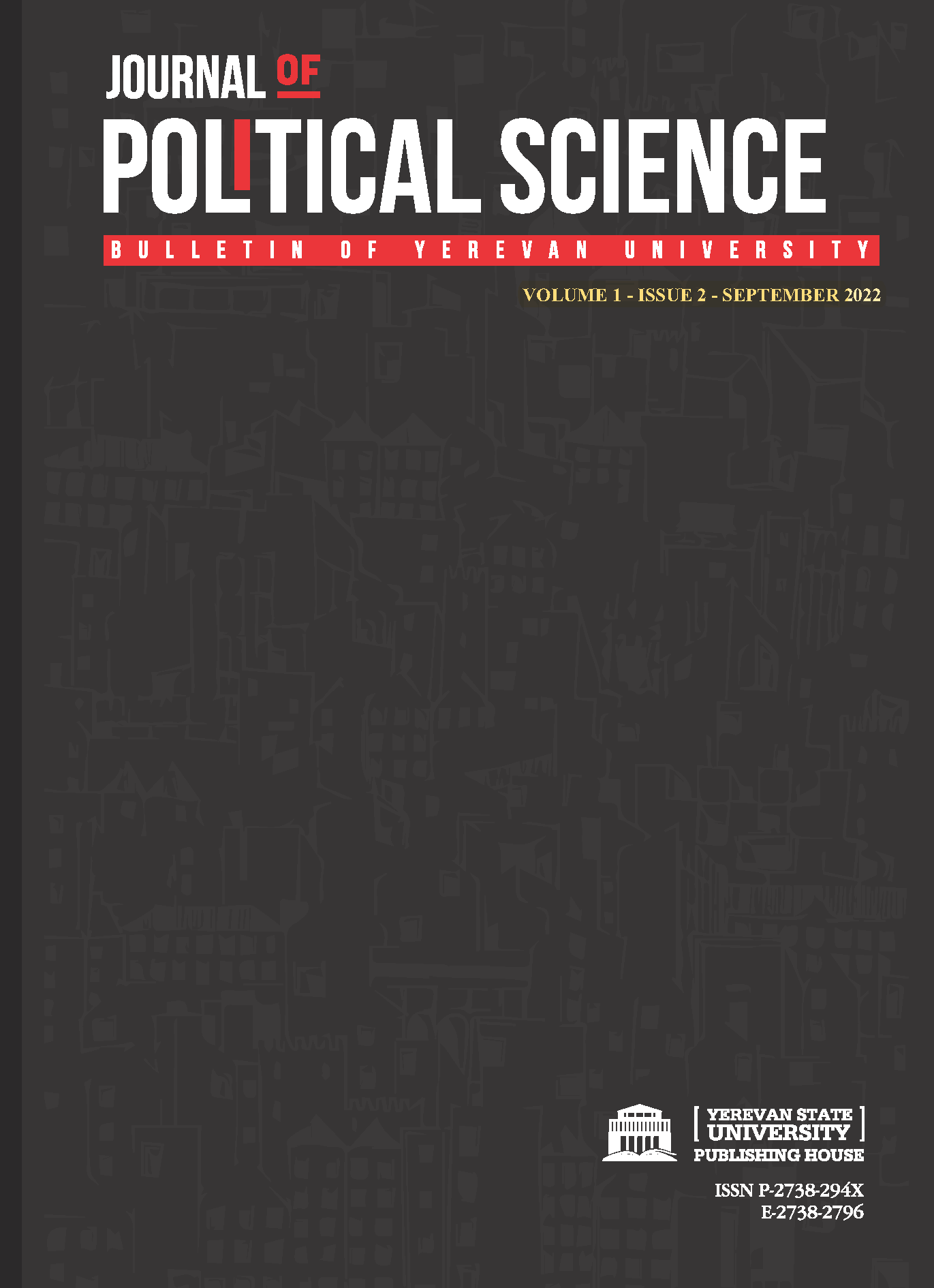Lebanidze, Bidzina. 2020. Russia, EU and the Post-Soviet Democratic Failure. Vergleichende Politikwissenschaft. Wiesbaden: Springer VS. XV, 329 pp. https://doi.org/10.1007/978-3-658-26446-8
DOI:
https://doi.org/10.46991/JOPS/2022.1.2.139Keywords:
post-Soviet puzzle, democratic failure, post-Soviet states, enlargement, EU denied membership, liberalization, negative influence, pro-Russian opposition, shared neighborhood, pro-European elitesAbstract
This book is devoted to a comparative study of the democratization of the political regimes of the post-Soviet countries, as well as the main factors in the failure of post-Soviet democracy. In different chapters of the book, special attention is paid to the integration and democratization political processes, based on the results of which the author uses the concept of the post-Soviet puzzle. The problem of formation of democratic institutions, promotion of EU democratic strategies in the post-Soviet states, protracted conflicts in this region continue to pose complex questions for the researcher about the instruments of effective influence on these countries.
The main task of the author of this study was to analyze the new and transforming old tools used by the EU and the Russian Federation, to identify the main reasons for the failure of post-Soviet democracy. The author comparatively analyzes the role of Russia and the EU in resolving ethnic and political conflicts in the post-Soviet space, exercising economic incentives, as well as other domestic and external factors which leads to the post-Soviet puzzle and the failure of post-Soviet democracy.
References
Lebanidze, Bidzina. 2020. Direct external influence: Elections in the post-Soviet states. In: Russia, EU and the Post-Soviet Democratic Failure, 191-245. Vergleichende Politikwissenschaft. Wiesbaden: Springer VS. https://doi.org/10.1007/978-3-658-26446-8_9.
Lebanidze, Bidzina. 2020. Domestic prerequisites for democratization. In: Russia, EU and the Post-Soviet Democratic Failure, 85-109. Vergleichende Politikwissenschaft. Wiesbaden: Springer VS. https://doi.org/10.1007/978-3-658-26446-8_6.
Lebanidze, Bidzina. 2020. European and Russian strategies in the post-Soviet space. In: Russia, EU and the Post-Soviet Democratic Failure, 125-190. Vergleichende Politikwissenschaft. Wiesbaden: Springer VS. https://doi.org/10.1007/978-3-658-26446-8_8.
Lebanidze, Bidzina. 2020. Measuring the external leverage in the post-Soviet states. In: Russia, EU and the Post-Soviet Democratic Failure, 111-124. Vergleichende Politikwissenschaft. Wiesbaden: Springer VS. https://doi.org/10.1007/978-3-658-26446-8_7.
Lebanidze, Bidzina. 2020. Regime outcomes and degree of democracy in the post-Soviet states. In: Russia, EU and the Post-Soviet Democratic Failure, 71-84. Vergleichende Politikwissenschaft. Wiesbaden: Springer VS. https://doi.org/10.1007/978-3-658-26446-8_5.
Downloads
Published
Issue
Section
License
Copyright (c) 2022 Hayarpi Drmeyan

This work is licensed under a Creative Commons Attribution-NonCommercial 4.0 International License.



